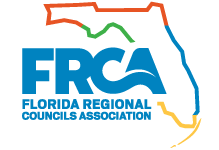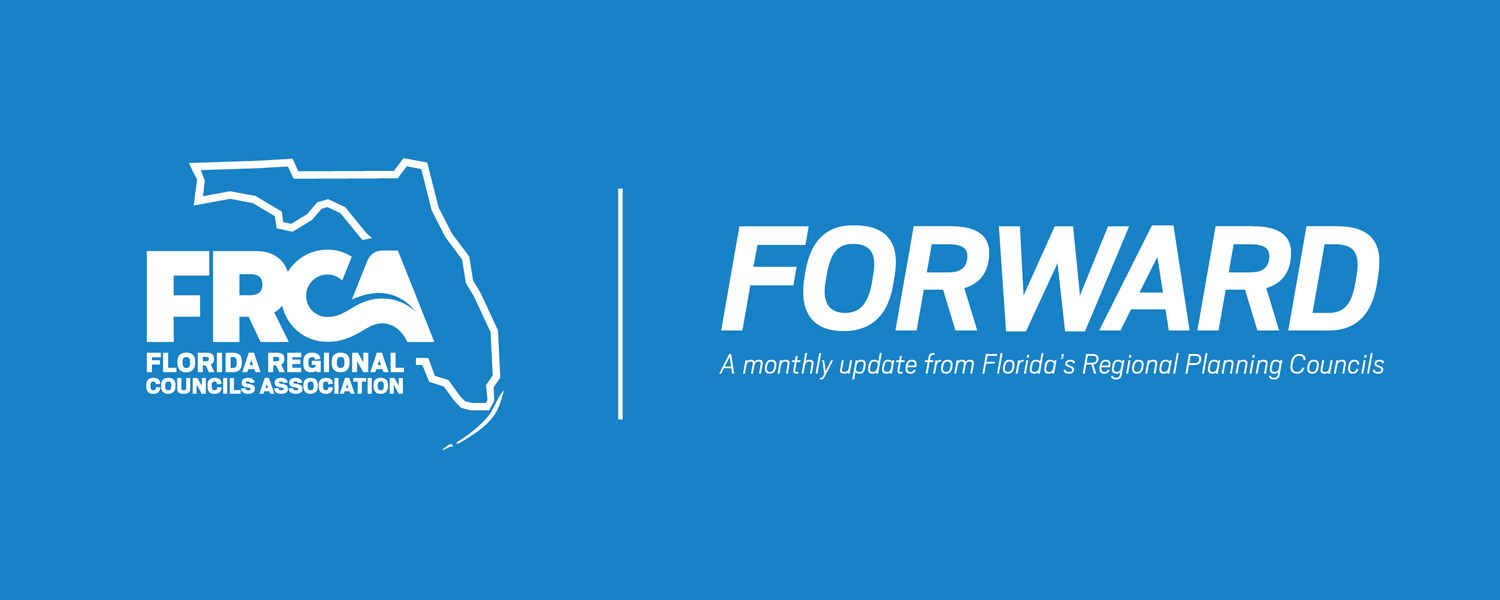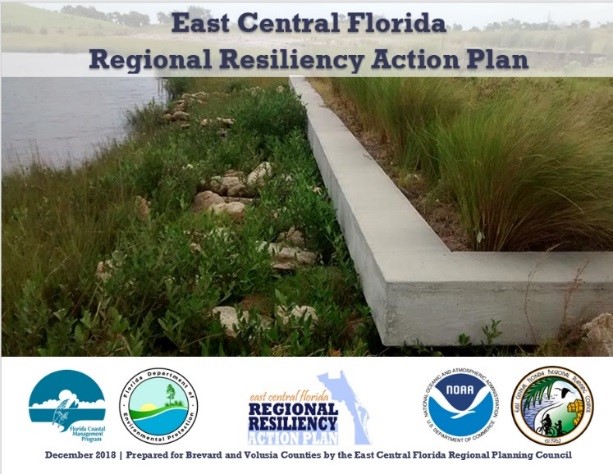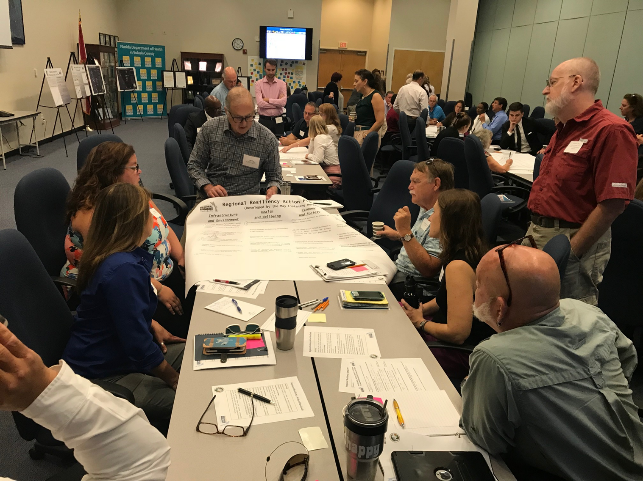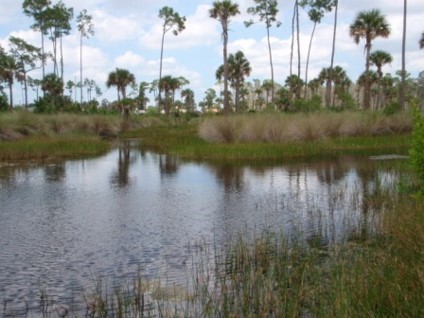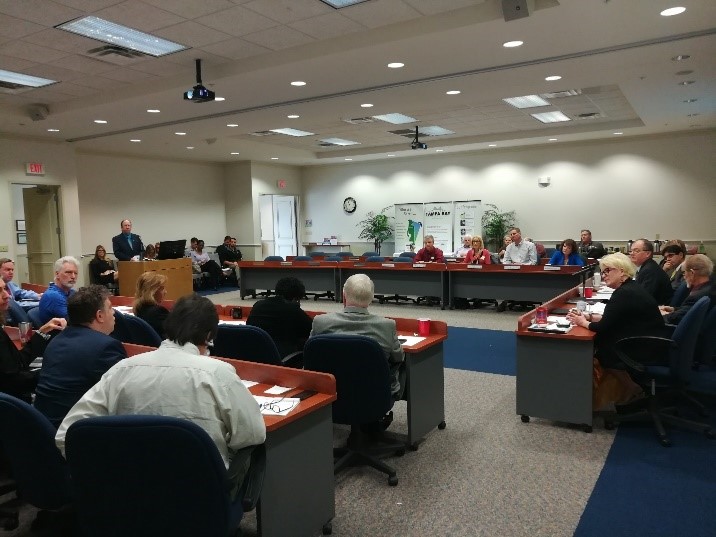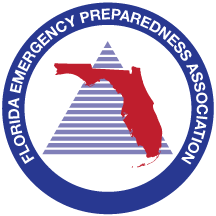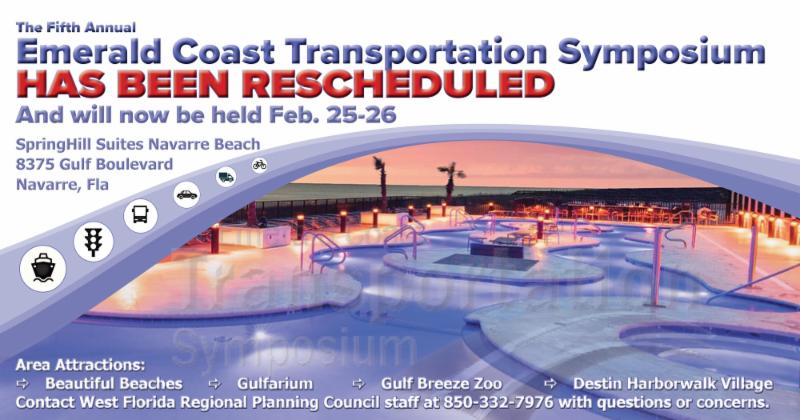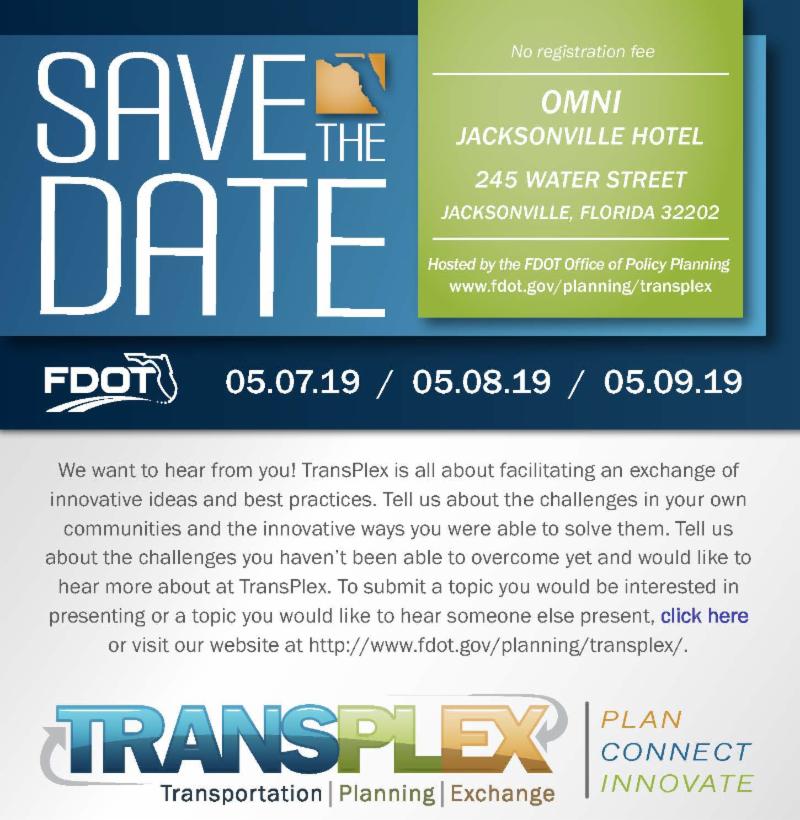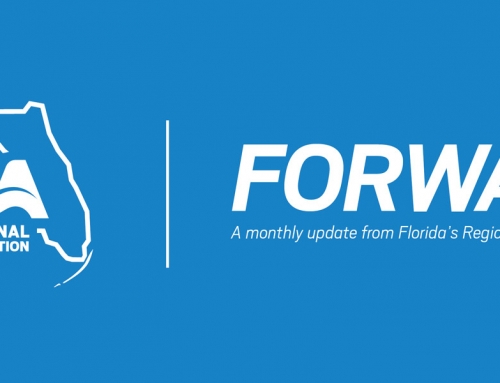A Regional Approach to Resilience in East Central Florida
Since 2003, the East Central Florida RPC has been examining the connection between sea level rise and impacts to the built and natural environment. Working with the coastal jurisdictions, it was often found that local comprehensive plans addressed rising sea level with only a sentence or two to the effect of “we will monitor the situation”. To assist the coastal communities answer the questions, “Where do we start?”, “Now what?”, and “What role does my agency have?”, the East Central Florida RPC was awarded a technical assistance grant from the Florida Department of Environmental Protection and the National Oceanic and Atmospheric Administration. The grant, awarded in 2017, funded work with Brevard and Volusia counties to develop the East Central Florida Regional Resiliency Action Plan.
The goal of the Action Plan is to increase the ability of local and regional stakeholders to implement resilient climate adaptation strategies across disciplines. The plan development process revolved around guidance from a cross-disciplined steering committee, extensive stakeholder engagement, and best practice research. To guide the development of the Action Plan as well as a regional approach to sea level rise planning, a steering committee was formed comprised of federal, state, regional and local agencies and institutions, local communities and subject matter experts. As a stakeholder driven process, the East Central Florida RPC worked extensively to engage all levels of government, the private sector and the public through workshops, a survey and numerous agency interviews and feedback sessions.
The framework for the Action Plan was based on the 100 Resilient Cities program of the Rockefeller Foundation and presents a five-year planning horizon based around four focus areas:
- Leadership and Strategy,
- Economic and Society,
- Infrastructure and Environment, and
- Health and Wellbeing.
The plan is a call for action and partnership across all levels of government agencies, not-for-profits, the business sector and other stakeholders as resilience can not be approached in silos and takes all facets of a community.
One major takeaway from the process was that while the coastal communities may have the specific threat of sea level rise to plan for, the conversation of resilience cannot be had through a coastal county versus landlocked county perspective. To tackle resilience in a region as unique as east central Florida, a truly regional approach is needed. This approach considers commonalities such as flooding, transportation, economic resilience, sustainability and socio-economic vulnerabilities, but also the uniqueness of each community such as agriculture dependence, sea level rise, migrating ecosystems as well as the human population.
For these reasons, the East Central Florida RPC Board unanimously passed a resolution in September of 2018 to develop the framework for a more inclusive/or expanded regional resilience collaborative. This effort is in its infancy, but we are excited to work with our eight-county region to formulate a new collaborative process that will work to foster comprehensive resilience strategies. Information on the action plan and its process can be found here: https://www.perilofflood.net/ecfresiliency
_____________________________________________________________________________________________________________________________________
Southwest Florida RPC Assists Lee County with Master Wetland Mitigation Strategy
In 2005 the Southwest Florida RPC assisted Lee County to develop the Lee County Mitigation Plan. The Plan pioneered a landscape scale watershed management-oriented plan for coherent wetland protection and restoration and was an inclusive multi-entity public planning process. The Plan has functioned well for the past fourteen years, improving water quality, protecting and restoring wetland habitats, creating habitat linkages in a regional wildlife habitat system, successfully offsetting unavoidable wetland impacts of public road and utility projects and reducing permitting time for the county and the wetland regulatory agencies.
Building from this success, the Southwest Florida RPC recently worked with Lee County Public Works and Department of Transportation staff to produce a strategy for wetland acquisition, protection, and restoration that will also provide mitigation opportunities. Staff used accumulated data and studies from regional capacity-building projects, including the Southwest Florida Watershed Study framework for Lee County, the Coastal Conservation Corridor Plan, Southwest Florida Regional Restoration Coordination Team Plan, and restoration goals of the Charlotte Harbor National Estuary Program to develop the improved strategy. The Master Mitigation Plan has three main purposes:
- to provide a master strategy by which critical wetland environmental features continue to be preserved,
- to provide “safe harbor” approaches for wetland mitigation projects that are required for the infrastructure needed to accommodate growth, which in turn will enable the local government budgeting process to be reliable, and
- to restore degraded wetland resources that are important for the health, safety, and welfare of the public.
_____________________________________________________________________________________________________________________________________
Tampa Bay RPC Hosts Strategic Planning Workshop
The Tampa Bay RPC conducted a Strategic Planning Workshop to update the Council’s Initiatives Plan. The Initiatives Plan serves as the Council’s strategic plan and has several purposes:
- Identifies several priority initiatives that the Council wishes to engage,
- Identifies the ongoing initiatives and programs that the Council has traditionally chosen to participate in and wishes to maintain,
- Outlines the Council’s mandated programs and adopted initiatives, and
- Provides the preceding in a concise format.
All Council members were invited and encouraged to participate with this process. The adopted Initiatives Plan will serve as a guiding document for the Council’s projects and programs during 2019 -2020.
_____________________________________________________________________________________________________________________________________

FEPA 2019 Annual Meeting and Work Session
February 4-8, 2019
